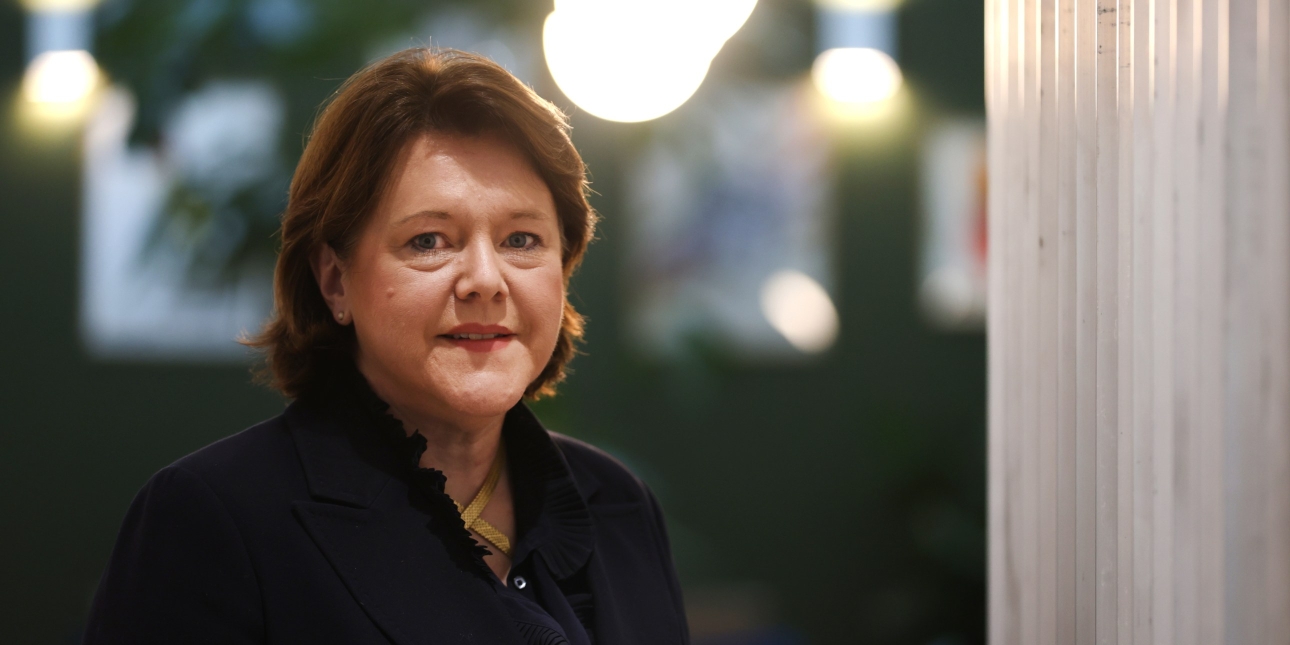Dame Maria Miller: ‘Communications should be at the heart of business’
The CIPR’s first independent chair talks about her career in advertising and government, why PR needs a seat at the board, and the untapped comms talent in the influencer community.
Born in a Wolverhampton council house in 1964, Dame Maria Miller was raised in Bridgend, south Wales before working in advertising, marketing and PR for nearly 20 years, including stints as marketing manager at oil giant Texaco, and as company director at both Grey Advertising and the Rowland Company.
Having been a Conservative party member since she was 18, Miller was elected MP for Basingstoke in 2005. She later occupied two roles in David Cameron’s cabinet: secretary of state for culture, media and sport, and minister for women and equalities, where she played a key part in the Leveson report on press reform and the Act which granted same-sex couples equal marriage rights.
After serving as chair of the women and equalities Select Committee from 2015-2020, Miller lost her Basingstoke seat in the 2024 election.
In January, Miller became the first independent chair of the CIPR.
The late-1980s were a great time for advertising. I joined the graduate trainee programme at Grey in 1985, where I contributed to campaigns such as Galaxy’s ‘Why have cotton when you can have silk?’ and Pedigree Chum’s Crufts ads. It was a time of creating strong brands/campaigns with huge budgets and creative freedom.
I became a politician to help bring voices like mine into the conversation. As a working mum in the late-1990s, securing affordable, accessible childcare while managing a full-time job was incredibly difficult. Giving women flexible working options to keep them connected to the job market was vital in preventing them falling off the career ladder. The gender pay gap – which remains a huge problem for women over 40, something businesses and all governments ignore – partly stems from women taking jobs far below their skill levels.
My approach to my career has always been to take on issues that others overlook. Same-sex marriage was one such cause. It’s hard to believe now but in 2012, 250,000 people signed petitions against same-sex marriage. The legislation was difficult to land, but passed a year later. Within a decade, public acceptance of same-sex marriage grew from 50% to 75%. Anyone in communications knows creating a societal change like that isn’t easy. The government didn’t heavily promote the benefits – but various groups used it as a building block to demonstrate we’re a stronger society when we’re diverse and supportive.
One of the reasons I took the CIPR job is that after 20 years in parliament, I understand the importance of strong decision-making. The governance of an organisation like CIPR is critical. There’s a growing awareness among employers that their staff have strong views on ethical issues, climate change, international politics, or working arrangements. Having strong governance ensures companies can address these concerns in a constructive way.
I also applied for the CIPR job because… I passionately believe communications should be at the heart of every business, particularly at a time when 24/7 media means it’s important for businesses and brands to pivot quickly if they come under attack.
Boards ideally should have a communications expert in the mix. Some sectors, such as legal firms, are recognising the value of in-house comms experts for crisis management. They wouldn’t do this if they thought PR was ‘fluffy’. It’s fact-driven work, and they’re hiring experienced professionals to deliver high-quality results. It’s also up to us to show we’re not fluffy individuals with clipboards. There’s a lot of meat behind what we do…
PR has long been subservient to marketing, which is a very different skill. Public relations should focus on the key messages the brand wants to deliver, rather than getting bogged down in marketing plans. What’s the organisational strategy? How do you ensure staff embody your values and deliver a consistent message across all channels? Often, it’s public relations professionals who can best deliver that.
The PR sector needs to work harder on reaching out to diverse audiences. The industry’s current lack of diversity means we’re not fully representing the society we serve or giving businesses access to the brightest and best. The industry needs to be open to everybody. It’s about going to [students at] schools and universities and telling them about the fantastic career they can have.
I wonder how many influencers realise they’re part of the PR industry… If they paused to explore resources like the CIPR website, they might even consider turning it into a career. This is a generation that could excel if they professionalised their passions by learning the craft and understanding the tools of the trade.
Over the next 12 months, the CIPR will focus on providing members with access to the right training and qualifications. Things are moving incredibly fast, whether it’s social media, AI or online regulation. If our members are going to stay on top of their jobs, they’ll need to be able to access the best training, research and information.
Businesses need to be fleet-of-foot: those businesses in command of their communication messages, who can also respond quickly when situations change, are going to be the ones who win the battle of 2025. Public relations, strong messaging and crisis communications will be part of the bread-and-butter of these businesses if they want to be successful.

Lysanne Currie is the editor of Influence. She previously edited Director magazine for the Institute of Directors and Sky magazine for British Sky Broadcasting. Lysanne is the founder and CEO of content agency Meet the Leader.
.jpg&w=728&h=90&maxW=&maxH=&zc=1)
